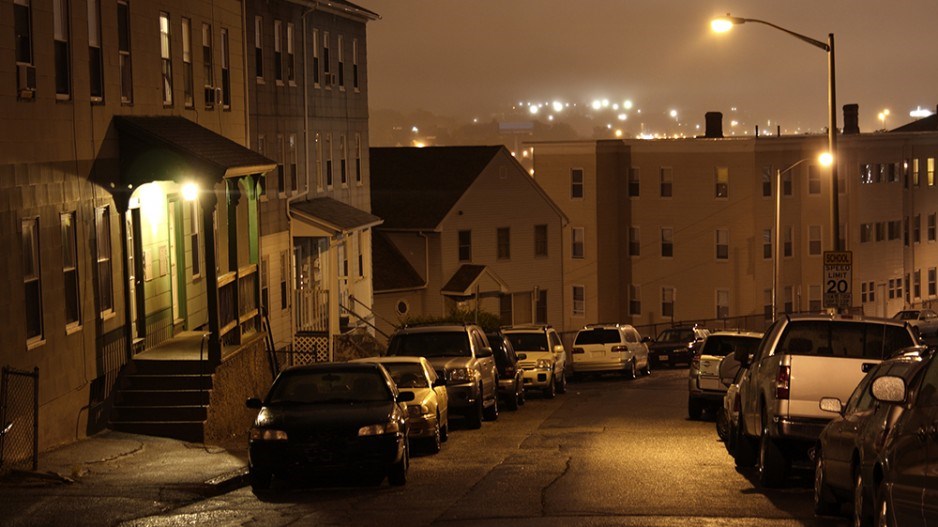Over the past few months, some municipalities across Metro Vancouver began to discuss the idea of charging a fee to residents who park their cars overnight on residential streets.
The concept, at least in Vancouver, entailed implementing the policy to reduce the city’s carbon footprint by 50% in the next 10 years.
In October, Vancouver City Council rejected the planned course of action in a decision where Mayor Kennedy Stewart cast the deciding vote. The recommendation to charge $45 a year for residents to park from midnight to 7 a.m. on residential streets also included a charge of $1,000 for specific high-emission luxury vehicles bought after 2023.
When Research Co. and Glacier Media asked drivers in Metro Vancouver about their overnight parking habits, just over half of them (51%) acknowledge that they use their garage for the purpose it was built: to temporarily store motor vehicles. More than one in five (22%) rely on a shared parkade in a building. Only 13% have a garage but do not park their vehicle there, a proportion that rises to 26% in Vancouver.
The policy, as proposed in Vancouver, would have affected a low number of residents. It would also have been possible to see the unexpected consequence of compelling people who treat their garage as a home-adjacent storage unit to clear it and use it for parking if they wanted to save $45 a year.
In any case, drivers in Metro Vancouver are not thrilled. Only 28% think charging a fee to vehicle owners who park their cars on residential streets overnight is a good idea, while 64% think it is a bad idea.
Animosity towards the notion of paying to park overnight on residential streets rises with age, from 58% among Metro Vancouver drivers aged 18 to 34, to 64% among those aged 35 to 54 and to 70% among those aged 55 and over. Majorities of drivers in Surrey (62%), Vancouver (61%) and the remaining municipalities in the region (67%) think the fee scheme is a bad idea.
The survey also gave us an opportunity to look at whether Metro Vancouverites are returning to their pre-pandemic driving habits. The results show that finding a place to park when running errands is not as terrible as it once was. When we originally asked drivers in 2018, 81% of them told us that it was “harder” to find a parking spot in their municipality than five years ago. This year, the proportion has dropped to 70%. High, but not as hopeless as before.
Drivers are usually upset for two reasons when they think of parking their vehicles: the emergence of dedicated bike lanes that allegedly take away parking spots that would otherwise be free for them, and the installation of parking meters on streets that previously had no meters.
Still, the frustration of drivers is not as evident now as it was in 2018.
We do see some welcome changes on issues related to parking tickets. We found that 27% of drivers in Metro Vancouver have received a citation over the past two years, down from 31% in 2018. While the proportion of drivers in Surrey who report getting a ticket fell from 33% in 2018 to 22% in 2021, there is a marked increase in Vancouver over that three-year span: to 40% from 28%. This may be a result of both simple carelessness from drivers and increased enforcement from cities and companies.
Our overall behaviour in regard to tickets is better this year. In 2018, 13% of drivers in Metro Vancouver who received a parking citation from a municipality said they never paid it. This year, the proportion has dropped to 6%. More residents are taking ownership of their parking trespasses, albeit slowly. Two-thirds of offending drivers (68%, down eight points) chose to deal with the ticket quickly to get a discount, while more than one in four (26%, down 15 points) eventually covered the full amount.
The numbers are similar to when a parking management company issues the ticket. A majority of drivers who are caught in violation (56%, up five points) pay quickly and get a discount, while 30% (up 15 points) cover the full amount after a few days. While we still see 15% of offending drivers who ignore the fines owed to a parking management company, the proportion is lower than the 34% we reported on in 2018. The ability to admit parking violations may not be universal across Metro Vancouver, but the situation is improving. •
Mario Canseco is president of Research Co.
Results are based on an online study conducted from November 27 to November 29 among 521 adults in Metro Vancouver who drive to school or work on weekdays. The data has been statistically weighted according to Canadian census figures for age, gender and region in Metro Vancouver. The margin of error, which measures sample variability, is plus or minus 4.3 percentage points, 19 times out of 20.




.jpg;w=120;h=80;mode=crop)